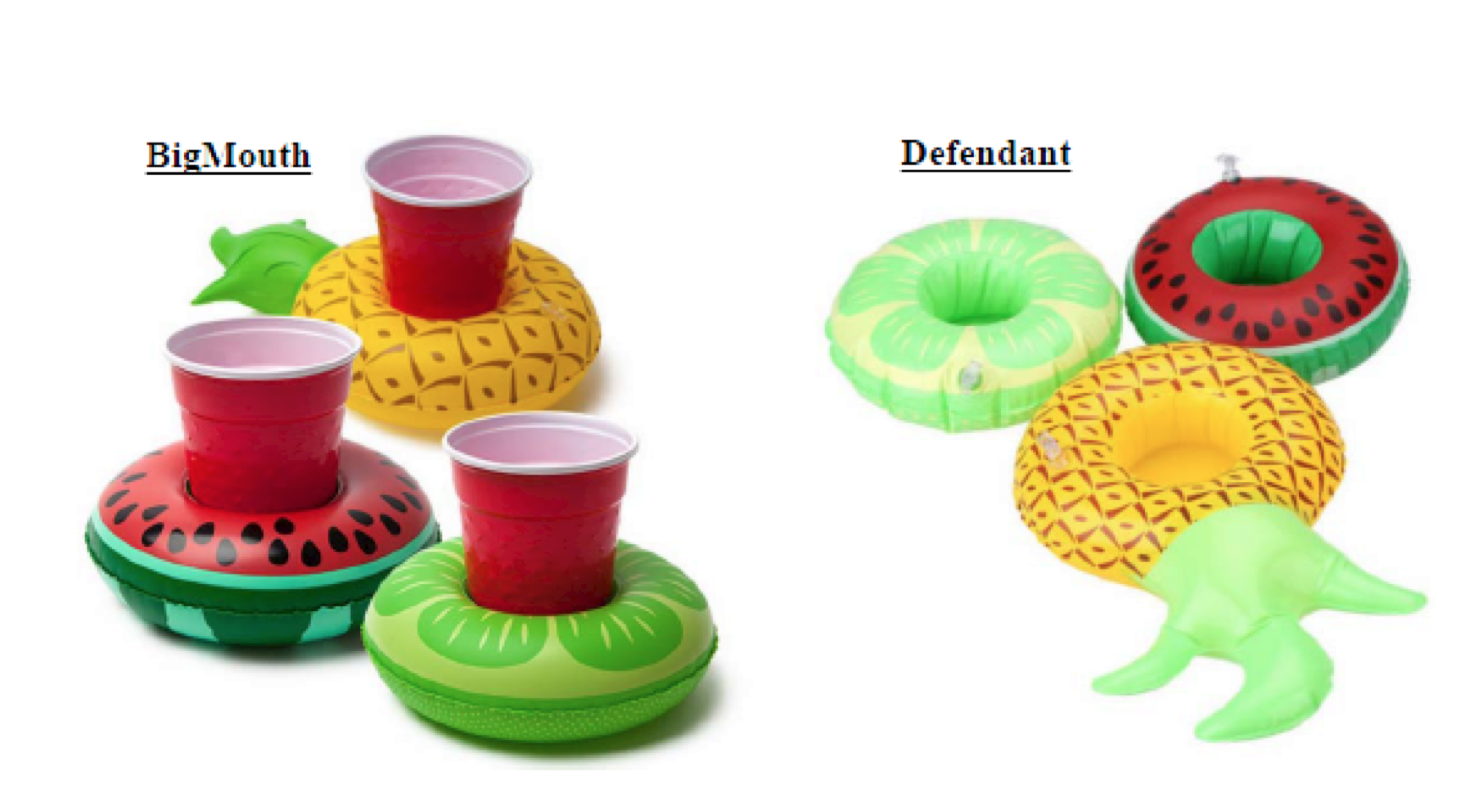
The official start of summer is just a month away, and with it will come a surge in beach and poolside Instagram posts. This means that we will likely see more of last year’s ubiquitous must-have accessory, cheeky inflatable pool toys shaped like everything from flamingos and pineapples to Kim Kardashian’s derriere – the latter of which is being sold as part of the reality star’s Kimoji collection.
Leading the charge in this trend has been BigMouth, LLC (“BigMouth”), an Indianapolis, Indiana-based designer and manufacturer of inflatable pool toys. The company has an expansive portfolio of over five hundred “unique, high-quality products sold under the BIG MOUTH TOYS trademark” and boasts many famous endorsers (albeit unofficial ones), such as Rihanna, the Kardashian/Jenners, Taylor Swift, Reese Witherspoon, and Snoop Dogg, among others.
Recently, BigMouth has taken to aggressively filing multi-million-dollar lawsuits to enforce its trademarks, copyrights, and patents (which cover many of its various pool float designs, and the artwork and packaging associated with them) against copycats. Over the last year alone, BigMouth has filed seven strongly-worded lawsuits: Five in July 2016 in the United States District Court for the District of Connecticut; one in February; and most recently, one in April (the latter two were both filed in the U.S. District Court for the District of Massachusetts).
In the lawsuit it filed in February, BigMouth asserted that it “has invested hundreds of thousands of dollars and has expended significant time and effort in advertising, promoting, and developing its BigMouth Mark throughout the United States and the world.”
The complaint goes on to accuse Shenzhen, China-based Aukey International Ltd. of selling counterfeit “inflatable drink floats” (read: pool floats for red solo cups) that are “nearly identical in appearance to genuine BigMouth goods, but … inferior in quality,” on eBay and on websites operating in China.
To make matters worse, BigMouth alleges that the lookalike pool toys were falsely marketed as authentic BigMouth products, as they “were offered for sale and sold using an identical reproduction, counterfeit, copy, or colorable imitation of the BigMouth [trademark].”
Due to such willful manufacture, promotion, advertisement, and sale of counterfeit goods, BigMouth is seeking damages of “$2,000,000 per counterfeit [trademark] per type of goods or services sold, offered for sale, or distributed by Defendant.”
In an earlier lawsuit, one that was filed in July 2016, BigMouth accused SoloFleet, an anonymous Amazon seller, of infringing its design patent-protected flamingo pool float by selling a counterfeit version on Amazon.com – where authentic BigMouth products are also sold. BigMouth claims that initially, “SoloFleet sold the counterfeit BigMouth products through the BigMouth product listings on Amazon.com,” but eventually “began offering for sale and selling similar products, labeling them as “SoloFleet®” products instead.
In that case, BigMouth is seeking to “preliminarily and permanently enjoin SoloFleet” from further infringing its visual materials copyrights and Flamingo Float patent, as well as statutory damages in the millions.
The other lawsuits filed by BigMouth similarly allege the application of its name and deceptively similar labels and graphics to unauthorized copies of its products.
Given the popularity of these floats and pool toys, it is likely that the distribution of counterfeits will continue. We will have to wait and see if this summer brings further legal action from BigMouth, or any significant victories in any of these ongoing cases.
Nicole Malick is a student at the University of Pennsylvania Law School.







